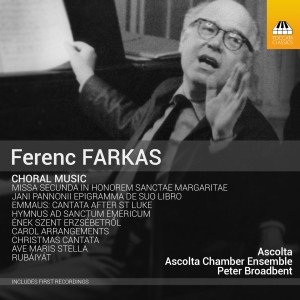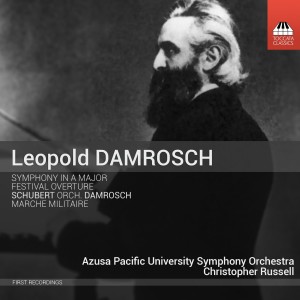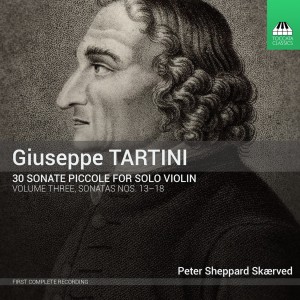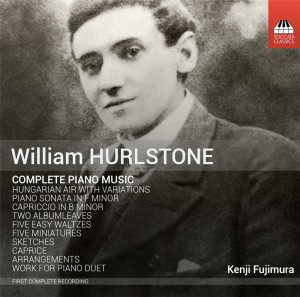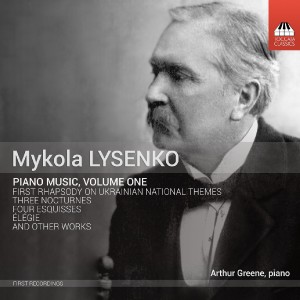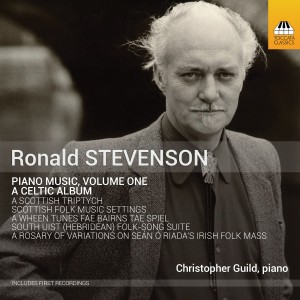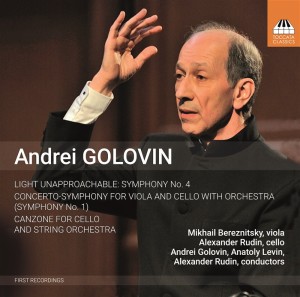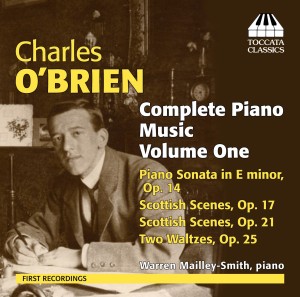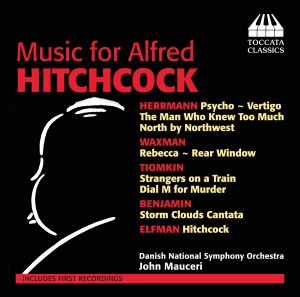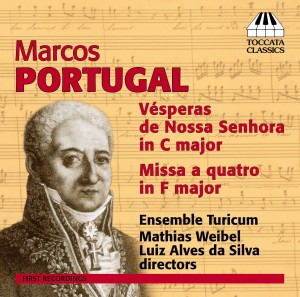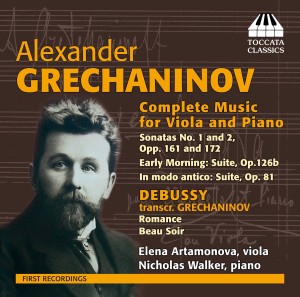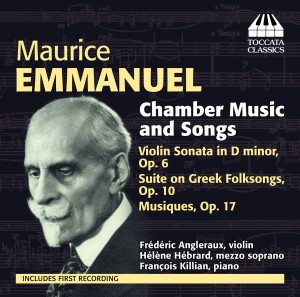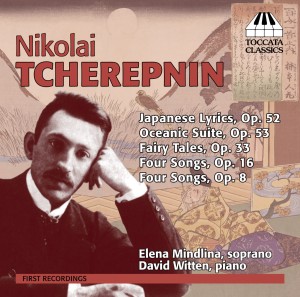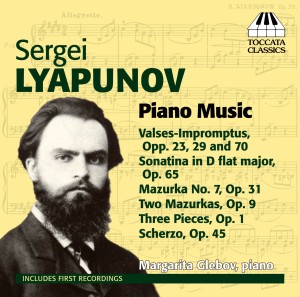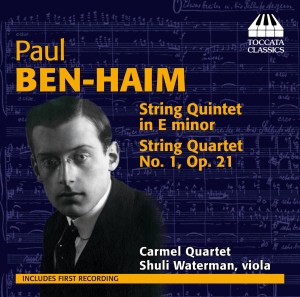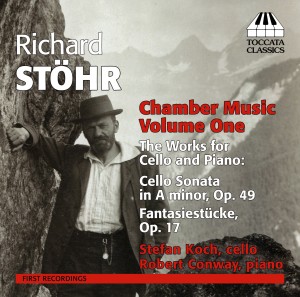Search Results for "Space Wolf: The First Omnibus mp3 torrent" – Page 26
Ferenc Farkas: Choral Music
Toccata Classics continues its exploration of the music of the Hungarian composer Ferenc Farkas (1905–2000) with this selection from his huge output of choral music, ranging in mood from the folklike simplicity of the Missa Secunda in honorem Sanctae Margaritae and his bright carol settings via the asperity of some late a cappella pieces to the fresh and buoyant Christmas Cantata. This recording is also the first by the new London-based chamber choir Ascolta.
Ascolta; Ascolta Chamber Ensemble; Peter Broadbent, conductor;
Leopold Damrosch: Orchestral Music
The Prussian-born conductor-composer Leopold Damrosch (1832–85) built his reputation through the orchestra he founded in Breslau, emigrating in 1871 to the USA, where he founded a number of important musical institutions in New York and became chief conductor at the Metropolitan Opera and the New York Philharmonic. These spirited student performances reveal that the same sense of adventure informed his own music, heard here in its first recordings. At the heart of his only symphony, which sits between Brahms and Wagner, is a dark and powerful funeral march. The disc opens with a jubilant overture which takes an excited lead from Wagner’s Meistersingers and closes with a bonne bouche in the form of Damrosch’s orchestration of a Schubert favourite.
Azusa Pacific University Symphony Orchestra; Christopher Russell, conductor
Giuseppe Tartini: 30 Sonate Piccole for Solo Violin, Volume Three: Sonatas Nos. 13-18
In the last years of his life, the great composer, violinist and swordsman Giuseppe Tartini (1692–1770) laboured at a cycle of sonatas for solo violin. The resulting manuscript offers the most important composition for solo violin after Bach and, at six hours in duration, the largest integrated work for the instrument. This first complete recording is based on a fresh study of the source and includes a number of works in Tartini’s shorthand, overlooked in earlier editions.
Peter Sheppard Skærved
William Hurlstone: Complete Piano Music
London-born William Yeates Hurlstone was only 30 when he died, in May 1906, and yet the music he was able to compose during his short life shows remarkable accomplishment. This CD presents the first-ever recording of his complete piano music, which develops from confident childhood essays, takes on board the influences of Chopin and Brahms, and matures into an assured and natural style balancing lyricism and drama.
Kenji Fujimura, piano
Mykola Lysenko: Piano Music, Volume One
Mykola Lysenko (1842-1912) is regarded as 'the father of Ukrainian classical music'. As did Bartók later in Hungary, he went out into the field, listened to what the people were singing and fashioned an individual musical language that brought together the styles of Chopin and Liszt and the essence of Ukrainian folksong. This first CD of his piano music reveals a voice, long forgotten, of extraordinary immediacy and appeal.
Arthur Greene, piano
Ronald Stevenson: Piano Music, Volume One: A Celtic Album
The Scottish pianist Ronald Stevenson (born in 1928), a composer-performer in the grand tradition of Beethoven, Chopin and Rachmaninov, has written a generous quantity of music for his own instrument, ranging from tiny miniatures to his best-known work, the monumental Passacaglia on DSCH, This first of a series of recordings begins with an album inspired by the music of Scotland itself.
Christopher Guild, piano
Andrei Golovin: Orchestral Music
The music of Andrei Golovin (born in Moscow in 1950) lies in the Russian symphonic tradition downstream from Shostakovich and Boris Tchaikovsky. His music, like theirs, employs a sombre lyricism to conjure up images of vast open spaces but can also flare up in outbursts of considerable power. This CD presents a conspectus of almost four decades of his compositions, ranging from his first symphony to his most recent.
Tchaikovsky Symphony Orchestra; Andrei Golovin, conductor; Musica Viva Chamber Orchestra; Alexander Rudin, cello and conductor; Mikhail Bereznitsky, viola; Moscow Conservatoire Concert Symphony Orchestra; Anatoly Levin, conductor;
Charles O’Brien: Complete Piano Music, Volume One
Charles O'Brien (1882-1968) was a mainstay of musical life in Edinburgh, but his attractive, lyrical muse has long been forgotten even there, let alone anywhere else. This first recording in a series devoted to his music reveals a composer whose lively music reflects his Scottish heritage, mixing grand gestures with Schumannesque intimacies and Brahmsian bravura.
Warren Mailley-Smith, piano
Music for Alfred Hitchcock
Alfred Hitchcock commissioned his film scores from composers who were Hollywood's master-craftsmen. The concert items prepared from those scores — some of them in versions receiving their first recordings here — feature a dazzling variety of styles, from Baroque and jazz to dark Romanticism and angular angst, all using the orchestra with breathtaking virtuosity.
Danish National Symphony Orchestra, orchestra
John Mauceri, conductor
Marcos António Portugal: Choral Music
The Portuguese-Brazilian composer Marcos António Portugal (1762-1830) was best known in his day for his fifty or so operas, but he also composed a huge body of more than 160 religious choral works. The two here — in their first performances in modern times — illustrate his conservative Classical style as well as the operatic influences on his sacred music, but the absence of female voices from the chorus and violins from the orchestra bring an unexpectedly dark colour.
Ensemble Turicum, ensemble
Mathias Weibel, director
Luiz Alves da Silva, director
Alexander Grechaninov: Complete Music for Viola and Piano
Alexander Grechaninov saw much change in the course of his long life (1864-1956), fleeing Revolutionary Russia into exile, first in Paris and then the United States. A member of the second generation of nationalist composers — he was a student of Rimsky-Korsakov and Taneyev — he never abandoned an essentially Russian lyricism, as these attractive but largely unknown viola works make clear.
Elena Artamonova, viola
Nicholas Walker, piano
Maurice Emmanuel: Chamber Music and Songs
These three early works of the French composer Maurice Emmanuel (1862-1938) show him emerging from the influence of César Franck to find an individual voice, with an ambitious violin sonata (here receiving its first recording), a suite of arrangements of Greek folksongs, wiry and winsome by turn, and an atmospheric, large-scale song-cycle to texts by the poet, geologist and historian Louis de Launay — a polymath like Emmanuel himself.
Frédéric Angleraux, violin
Hélène Hébrard, mezzo soprano
François Killian, piano
Nikolai Tcherepnin: Songs
Nikolai Tcherepnin (1873-1945) — a student of Rimsky-Korsakov and teacher of Prokofiev — was a Russian-born composer and conductor, and the first of his family's musical dynasty. This CD provides an overview of his ninety-plus songs, which cover a wide range of styles. The early ones are in a late-Romantic idiom; the Japanese Lyrics of 1923 display oriental colours; and the extraordinary Oceanic Suite (1917-23), which sets a series of incantations by the symbolist poet Konstantin Balmont, presents modern evocations of primitive ritual.
Elena Mindlina, soprano
David Witten, piano
Sergei Lyapunov: Piano Music
The piano music of Sergei Lyapunov (1859-1924) blends the Russian nationalism of the Balakirev circle — of which Lyapunov was a member — with the virtuosic tradition of Liszt. Although his superb piano-writing combines contrapuntal dexterity and a rich vein of lyricism, much of his output for piano has been neglected, and this chronological survey, covering three decades of Lyapunov's composing life, contains a number of first recordings.
Margarita Glebov, piano
Paul Ben-Haim: Chamber Music
The Israeli composer Paul Ben-Haim (1897-1984) was born Paul Frankenburger and made his early career in his native Munich. Reading the danger signs earlier than most, he emigrated to Palestine in 1933 and soon became one of the leading figures in the musical culture of the emerging Jewish state. His music mirrors this change of circumstance: the early String Quintet (1919) taps a vein of rich late Romanticism influenced by Richard Strauss, but the rhapsodic First String Quartet (1937) is coloured by middle-Eastern melisma and folk-rhythms.
Carmel Quartet, string quartet
Shuli Waterman, viola
Richard Stöhr: Chamber Music, Volume One
Like Korngold, Schoenberg, Zeisl and Zemlinsky, Richard Stöhr (1874-1967) was another Austrian composer driven into American exile by the Nazis. His generous output of music — ripe for rediscovery — includes seven symphonies, fifteen violin sonatas among much other chamber music, songs, and choral and piano pieces. His two works for cello and piano — the four Fantasiestücke of 1907 and a Sonata from 1915, recorded here in the first of a series devoted to Stöhr's music — reveal a composer with a lyrical and expressive language downstream from Brahms and Schumann.
Stefan Koch, cello
Robert Conway, piano
Stay In the Know
JOIN THE TOCCATA NEWSLETTER
"*" indicates required fields
By visiting our site, you agree to our privacy policy regarding cookies, tracking statistics, etc.
